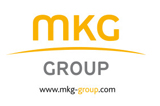World Ranking 2013 Of Hotel Groups And Brands
IHG 1st group, Accor 1st hotel operator, Holiday Inn 1st brand, while the Chinese Home Inns lies in ambush



The leading hotel groups worldwide and the top brands confirm global growth in branded supplies, although the economic context remains fragile. It confirms Anglo-Saxon supremacy, reinforced by the sale of Motel 6 to Blackstone by Accor, and China’s entry into the first circle of key actors in the global hotel sector.
«The race for size is a major challenge for hotel groups with a global ambition. Size enables hotels to offer their guests complete geographic coverage and a range of products that reinforces the power of commercialization,” explains Georges Panayotis, President of MKG Group. “In the context of growth that follows an asset light model, investors tend to give a premium to the leaders, whence the importance of announcing full pipelines.”
While there is no change at the top of the podium, steady growth for two years in the supply of Hilton Worldwide allows it to confirm its position in second place acquired last year to the detriment of Wyndham Hotel Group. The American group is gaining on the undisputed leader, InterContinental Hotels Group, and lags behind it by fewer than 24,000 rooms. Solidly backed by the strong growth of its fetish brand Holiday Inn Express, the British group is completing its restructuring of Holiday Inn. Still on the heels of Hilton Worldwide, Marriott International also confirms the advance it gained over Wyndham last year. The latter, still highly focused on its national territory, is trying to find the growth relays it needs outside the United States. It is nonetheless a member of the close circle of four groups that surpass 600,000 rooms.
Operating only through franchise, Choice Hotels regularly has to “clean up” its networks, as was the case for Comfort Inn in 2012. Nonetheless it falls into 5th place, ahead of Accor, which, despite record growth in 2012, must assume the loss of its Motel 6 network. And yet, through its subsidiaries, lease contracts and hotels under management, Accor remains the number-one hotel operator worldwide with 336,800 rooms directly managed by its teams.
The rest of the ranking does not show any major changes with natural growth for Starwood Hotels & Resorts and Best Western, which is growing its new label BW Plus; and the weaker growth of Carlson Hospitality, whose shrinking on the American continent is just compensated for by the dynamism of its subsidiary Rezidor on the EMEA zone. Having made a splash in the Top 10 last year, the Chinese Home Inns shows exponential growth that is promising in terms of climbing up in the ranking in the future.
The ranking of the first fifteen brands worldwide is more disrupted by restructuring within groups. By taking into consideration groups’ efforts to unite brands under umbrella brands, Holiday Inn and Holiday Inn Express legitimately hold first position in this ranking. The remarkable foray of Holiday Inn Express in 2012 (+9,000 rooms) compensated for the shrinking of its “big sister” (-6,350) allowing it to – almost – keep pace.
With the same logic of merging different labels under the same brand, Best Western has long occupied this first position and shifts into second position without falling from grace nonetheless. The arrival of Best Western Plus boosted growth in the United States and new territories joined the network.
Three American brands show a drop in their national territories that is not compensated for by international growth. It is easier to understand their desire to attack emerging markets to reinforce the pipeline while mature markets are being restructured.
Consecrated in 2012, the merger of the brands Etap Hotel and All Seasons under the same Ibis banner speeds up the growing strength of Ibis Megabrand, which has risen by 7 positions from one year to the next. It passed the economy brand Home Inns and would almost hold the world record for growth in supply, if it weren’t for the unbridled growth of the Chinese economy brand on its market. For two years, growth has been exponential and does not appear to be slowing down.
The drop of Days Inn of America on the American domestic market made the brand drop a rung, while the rest of the classification does not undergo any other changes, although it is remarkable to observe Choice’s rise thanks to the strong growth of Quality Inn, which is now being developed through Suites and Resorts. Crowne Plaza is trying to gain a larger share of the MICE hotel market worldwide with hotels that have increasingly large capacities.
“We can see that the strategy of merging brands in order to create the means to build a strong brand is a vital imperative for hotel groups. The battle is getting fierce at the top,” continues Georges Panayotis. “The now complete repositioning of Holiday Inn and the success of Ibis are good examples of this. It is important to achieve the real attributes of a brand: awareness, subscription and preference. This happens through reinforcement of marketing and communications.”
Created in 1985 by Georges Panayotis, MKG Hospitality is the European leader in consulting in the hotel, tourism and restaurant industry and has the largest hotel database in the world outside the United States, with good representation of all hotel segments. The database includes 45,000 hotels (more than 2.5 million rooms). The monthly observatory of MKG Hospitality’s Database is based on a sample of 11,000 corporate chain hotels, representing 1,000,000 rooms. Hotelcompset provides daily, monthly and annual tracking of hotel indicators. For more than 25 years: 250 hotel groups and chains in 150 countries (more than 800 markets) are followed by MKG Hospitality’s database. The pertinence of our statistical samples supports our expertise in analyzing hospitality industry observations.
Vanguélis Panayotis
Director of Development
+33 (0)1 56 56 87 87
Hospitality ON
